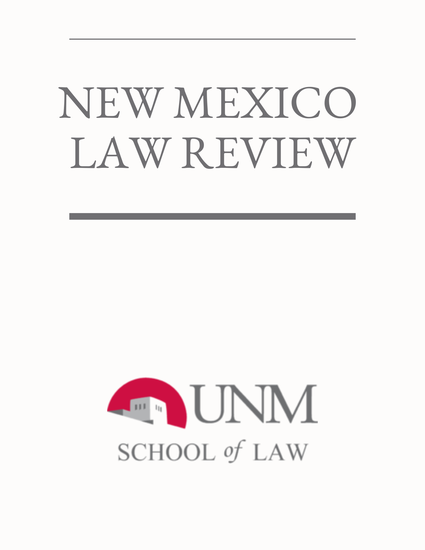
Article
From “Preferred Position” to “Poor Relation:” History, Wilkie v. Robbins, and the Status of Property Rights Under the Takings Clause
New Mexico Law Review
(2009)
Abstract
This article discusses the status of constitutional property rights in light of the Supreme Court’s 2007 decision in Wilkie v. Robbins. In Wilkie, the Court rejected a property owner’s claim that he had been retaliated against by federal officials for exercising his right to resist an uncompensated taking of his property, notwithstanding its prior precedents recognizing similar claims in the context of other constitutional rights. This article suggests that Wilkie reveals an attitude among the Justices that property rights are less worthy of judicial protection than other rights guaranteed by the Constitution. Moreover, the article contrasts this attitude with that of the early American legal culture, which gave property rights the preferred position among constitutional liberties and viewed the judiciary as a bulwark against the encroachment of those rights by the political branches of government. The article concludes by noting the importance this change in judicial attitude may have for constitutional rights generally. If rights as central to early constitutional understandings as those relating to property can be relegated based on shifting judicial preferences, then other rights would appear equally vulnerable.
Keywords
- takings clause,
- property rights
Disciplines
Publication Date
2009
Citation Information
Michael B. Kent Jr., From “Preferred Position” to “Poor Relation:” History, Wilkie v. Robbins, and the Status of Property Rights Under the Takings Clause, N.M. L. Rev. 89 (2009).
